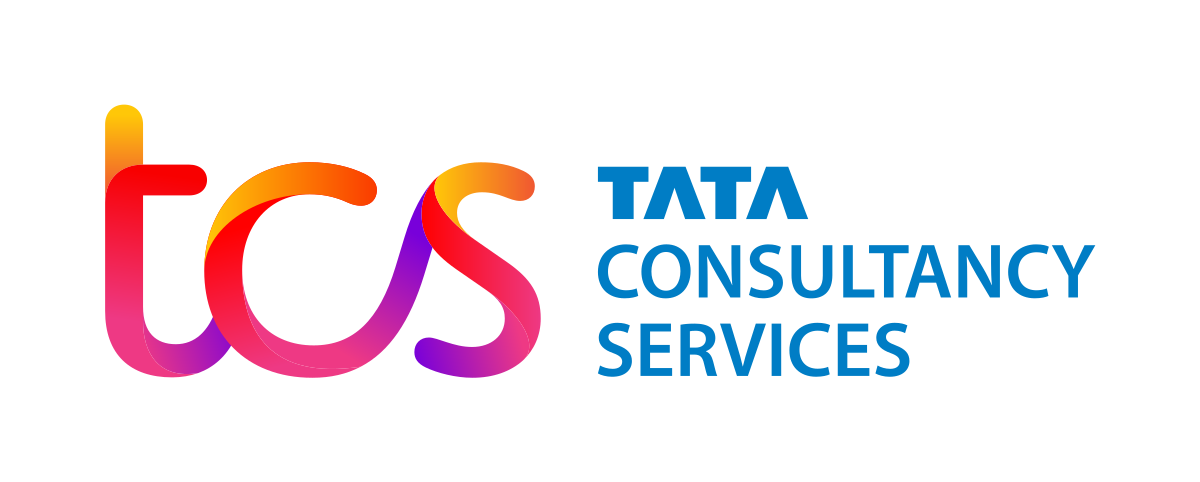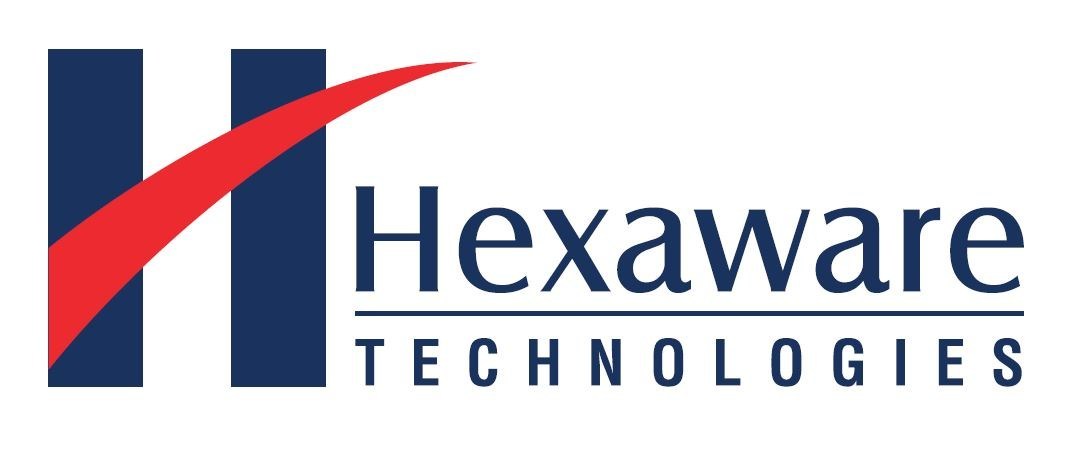Top 20 Best IT System Data Services Companies In India 2023
Top 20 Best IT System Data Services Companies In India 2023

India has emerged as a global hub for IT Services, and data services have become an essential part of the industry. With the advent of big data, cloud computing, and artificial intelligence, there is an increasing demand for companies that offer data services in India.
These companies provide a range of services such as data analysis, data integration, data mining, data warehousing, and more. In this article, we will explore the top 20 best IT system data services companies in India for 2023, based on their reputation, customer satisfaction, and quality of services offered.
- Tata Consultancy Services (TCS):
Tata Consultancy Services (TCS) is a global IT services, consulting, and business solutions company headquartered in Mumbai, India. It operates in over 46 countries and has a reputation for delivering high-quality custom software development services to clients worldwide. 
TCS leverages its innovation labs, research centers, and development centers to deliver software solutions across various domains such as banking, finance, healthcare, and retail, among others.
The company has a team of over 500,000 professionals who are skilled in using a range of technologies such as cloud computing, artificial intelligence, machine learning, and blockchain to meet the specific needs of clients.
- Infosys Limited
Infosys Limited is a multinational corporation headquartered in Bangalore, India, that offers consulting, technology, and outsourcing services. With a presence in over 45 countries, Infosys is known for providing custom software development services through its innovation labs and development centers.
The company is committed to innovation and uses emerging technologies such as artificial intelligence, machine learning, and cloud computing to deliver unique solutions to clients. Infosys has a team of over 250,000 professionals skilled in providing software development services in domains such as banking, finance, healthcare, retail, and more.
3.Wipro Limited
Wipro Limited is an Indian multinational corporation that offers consulting, information technology, and business process services. Headquartered in Bangalore, India, the company has a global presence in more than 50 countries.
Wipro is renowned for its custom software development services, which are delivered through its innovation centers and development centers. The company focuses on emerging technologies such as cloud computing, artificial intelligence, machine learning, and blockchain to deliver innovative solutions to its clients.
Wipro has a team of over 190,000 professionals who are well-versed in these technologies, and it offers software development services across various domains, including banking, finance, healthcare, retail, and more.
- HCL Technologies Limited
HCL Technologies Limited is a multinational technology company that provides IT services, consulting, and business process outsourcing services. Headquartered in Noida, India, the company has a global presence in over 45 countries. 
HCL Technologies is known for its custom software development services, which are delivered through its innovation labs and development centers.
The company has a strong focus on innovation, and it leverages its expertise in emerging technologies such as cloud computing, artificial intelligence, machine learning, and blockchain to deliver unique solutions to its clients.
HCL Technologies has a dedicated team of over 150,000 professionals who are well-versed in these technologies, and it offers software development services across various domains, including banking, finance, healthcare, retail, and more.
- Tech Mahindra Limited:
Tech Mahindra Limited is a leading provider of digital transformation, consulting, and business reengineering services. The company has consistently ranked among the top IT system custom software development companies in India.
Tech Mahindra offers a wide range of services, including application development, integration, and maintenance, digital transformation, big data and analytics, cybersecurity, and more. With more than 121,000 professionals across 90 countries, the company has a strong global presence.
- Cognizant Technology Solutions Corporation
Cognizant Technology Solutions Corporation is a multinational IT corporation that provides digital, technology, consulting, and operations services. The company has been a top player in the IT system custom software development industry for many years.
Cognizant offers a range of services, including application development and maintenance, testing and validation, enterprise mobility, big data and analytics, and cloud services.
With more than 291,000 employees worldwide, the company has a strong presence in India. Cognizant has delivered high-quality software development projects, and it uses a range of technologies to meet the unique needs of its clients.
- Capgemini Technology Services India Limited
Capgemini Technology Services India Limited is a prominent consulting, technology services, and digital transformation company that has been delivering innovative solutions to various industries, including healthcare, retail, banking, and finance.
It provides a wide range of services, including application development and maintenance, cloud computing, cybersecurity, big data and analytics, and more. The company has a strong presence in India, with over 125,000 employees in the country.
- Accenture Solutions Private Limited
Accenture Solutions Private Limited is a global professional services company that offers strategy, consulting, digital, technology, and operations services. 
It has been a leading player in the IT system custom software development industry in India and provides a wide range of services, including application development and maintenance, cloud services, cybersecurity, and more. Accenture has a strong presence in India, with more than 200,000 employees across the country.
- Mindtree Limited
Mindtree Limited is a renowned Indian multinational IT and consulting company that specializes in providing digital transformation and IT services to clients across industries such as banking and finance, healthcare, retail, and media.
With offices in India, the USA, the UK, Germany, and Singapore, Mindtree has over 28,000 employees and has won several awards and recognitions for its excellence in IT service delivery.
The company’s IT system custom software development services include software architecture and design, software development and engineering, and software maintenance and support.
- L&T Infotech Limited
L&T Infotech Limited is a global IT services company that specializes in digital transformation, consulting, and engineering services. A subsidiary of Larsen & Toubro Limited, the company has a presence in 30 countries, including India, the USA, Europe, and Asia-Pacific.
L&T Infotech’s IT system custom software development services include cloud-native application development, enterprise application services, and digital engineering services. The company has won several awards and recognitions, including the IDC Insights Award for Excellence in IT Service Delivery.
- IBM India Private Limited
IBM India Private Limited is the Indian subsidiary of IBM, a multinational technology and consulting company.
Established in 1992, IBM India has over 100,000 employees across the country and specializes in providing IT system custom software development, cloud computing, and data analytics services to clients across industries such as healthcare, banking and finance, and retail.
IBM India’s IT system custom software development services include software design and engineering, software testing and validation, and software maintenance and support.
- Mphasis Limited
Mphasis Limited is an Indian-based IT company that focuses on delivering digital transformation, IT infrastructure services, and application development to clients from various industries such as healthcare, banking, and finance, and retail. 
With over two decades of experience in the industry, Mphasis has established its presence globally, with offices in India, the USA, Europe, and Asia-Pacific. Their IT system custom software development services include cloud computing, infrastructure services, and application development and maintenance.
The company has received multiple awards and recognitions, such as the CIO Choice Award for IT Excellence in Cloud Services.
- NTT Data Services India Private Limited
NTT Data Services India Private Limited is a global technology services provider that delivers custom software development solutions to clients from diverse industries, such as healthcare, finance, and manufacturing.
The company has a significant presence in India, where it operates multiple development centers, and offers full-cycle software development, application modernization, cloud migration, and quality assurance and testing services.
To ensure that the software solutions meet the client’s specific needs, NTT Data Services India follows a consultative approach that focuses on understanding the client’s business requirements.
The development team consists of experienced software engineers, architects, and project managers who work collaboratively with the client to deliver successful projects. NTT Data Services India employs a variety of technologies and platforms, including Java, .NET, AngularJS, and React, to develop custom software solutions.
The company’s quality assurance and testing services ensure that the software is of the highest quality and reliability, covering functional testing, performance testing, and security testing.
NTT Data Services India also offers application maintenance and support services to ensure that the software remains updated and relevant to the client’s business needs.
- Hexaware Technologies Limited
Hexaware Technologies Limited is a global IT services company that offers custom software development services across various industries, such as banking, insurance, and healthcare. 
The company has a strong presence in India, where it operates multiple development centers, and delivers full-cycle software development, enterprise application development, and mobile application development services.
Hexaware also adopts a consultative approach that aims to understand the client’s business requirements and create tailor-made solutions. The development team is composed of experienced software engineers, architects, and project managers who work closely with clients to ensure successful project delivery.
Hexaware uses various technologies and platforms, such as Java, .NET, and Salesforce, to build custom software solutions.
Hexaware’s enterprise application development services optimize clients’ business processes and enhance productivity. The company’s mobile application development services enable clients to engage with their customers and employees through mobile devices.
Additionally, Hexaware provides cloud services, data analytics services, and quality assurance and testing services to help clients maximize the value of their custom software development investments.
- DXC Technology India Private Limited
DXC Technology India Private Limited is a global IT services company that provides custom software development services to clients from various industries, including healthcare, finance, and manufacturing.
The company has a significant presence in India and offers full-cycle software development, application modernization, and quality assurance and testing services.
DXC Technology’s custom software development process involves a consultative approach that aims to understand the client’s business requirements and deliver customized solutions. The development team comprises experienced software engineers, architects, and project managers who work closely with clients to ensure successful project delivery.
DXC Technology employs a variety of technologies and platforms, such as Java, .NET, and Salesforce, to develop custom software solutions.
DXC Technology’s application modernization services help clients update and improve their legacy software applications. Additionally, the company offers quality assurance and testing services that ensure the software developed meets the highest standards of quality and reliability.
DXC Technology also provides cloud services, data analytics services, and cybersecurity services to help clients maximize the value of their custom software development investments.
- Sonata Software Limited
Sonata Software Limited is an Indian IT consulting and software services company headquartered in Bengaluru, Karnataka. It was established in 1986 and offers a range of services, including custom software development, cloud services, mobility solutions, and analytics solutions.
The company has a global presence with offices in the USA, Europe, Middle East, and Asia-Pacific. It has a strong client base in industries such as travel, retail, distribution, and software product development. The company’s software development approach is customer-centric, which means they tailor their software solutions to the specific needs of each customer.
They have a team of experienced software developers proficient in various programming languages and methodologies, including emerging technologies such as blockchain, artificial intelligence, and machine learning.
The company has received various awards for its software development services, including being recognized as a leader in the Gartner Magic Quadrant for Application Services and the IDC MarketScape: Worldwide Retail Merchandise Operations Consulting Services 2021 Vendor Assessment.
- Zensar Technologies Limited
Zensar Technologies Limited is a global IT services and solutions company headquartered in Pune, Maharashtra. It was founded in 1991 and has a presence in 29 countries.
The company provides a range of services, including software development, infrastructure management, digital solutions, and business process outsourcing.
It has a strong presence in the USA, Europe, Middle East, and Asia-Pacific. The company’s approach to software development is also customer-centric, meaning they tailor their software solutions to meet each customer’s specific requirements.
They have a team of experienced software developers who are proficient in various programming languages and methodologies, including emerging technologies such as artificial intelligence, blockchain, and cloud computing.
The company has received various awards for its software development services, including being recognized as a leader in the Gartner Magic Quadrant for Application Services and the IDC MarketScape: Worldwide Retail Merchandise Operations Consulting Services 2021 Vendor Assessment.
- KPIT Technologies Limited:
KPIT Technologies Limited is a Pune-based IT services and solutions company that was established in 1990. The company has expertise in providing end-to-end IT solutions and services to its clients in various industries such as automotive, energy and utilities, manufacturing, and healthcare.
KPIT has a strong focus on innovation and sustainability, which is reflected in its offerings.
KPIT provides a wide range of services, including software development, system integration, application management, and consulting services. The company specializes in areas such as connected cars, electric mobility, and renewable energy, and has developed several innovative solutions in these areas.
KPIT’s software development services include product engineering, digital transformation, and enterprise application development. The company’s system integration services help clients integrate various systems and technologies into a seamless and cohesive ecosystem. KPIT’s application management services help clients manage their applications and IT systems efficiently and effectively.
KPIT has a strong focus on sustainability and has developed several innovative solutions in the areas of electric mobility and renewable energy. The company’s electric mobility solutions include battery management systems, electric powertrain systems, and charging infrastructure solutions.
KPIT’s renewable energy solutions include energy management systems, microgrids, and energy storage solutions.
KPIT has received several awards and recognitions for its IT services and solutions. In 2021, the company was recognized as a “Leader” in the Gartner Magic Quadrant for Application Services.
KPIT has also been recognized for its sustainability initiatives, and in 2021, the company was included in the FTSE4Good Index Series, which recognizes companies for their environmental, social, and governance (ESG) practices.
- Persistent Systems Limited:
Persistent Systems Limited is a Pune-based IT services and solutions company that was founded in 1990. The company provides end-to-end IT solutions and services to clients in various industries such as healthcare, financial services, and telecommunications.
Persistent Systems has a strong focus on innovation and has developed several innovative solutions in areas such as cloud computing, big data analytics, and machine learning.
Persistent Systems provides a wide range of services, including software development, system integration, product engineering, and consulting services. The company specializes in areas such as cloud computing, big data analytics, and machine learning, and has developed several innovative solutions in these areas.
Persistent Systems’ software development services include product engineering, digital transformation, and enterprise application development. The company’s system integration services help clients integrate various systems and technologies into a seamless and cohesive ecosystem.
Persistent Systems’ product engineering services help clients design and develop innovative products and solutions.
Persistent Systems has a strong focus on innovation and has developed several innovative solutions in areas such as cloud computing, big data analytics, and machine learning. The company’s cloud computing solutions include cloud migration, cloud-native development, and cloud management services.
Persistent Systems’ big data analytics solutions include data management, data governance, and data analytics services. The company’s machine learning solutions include predictive analytics, natural language processing, and computer vision.
Persistent Systems has received several awards and recognitions for its IT services and solutions. In 2021, the company was recognized as a “Leader” in the Gartner Magic Quadrant for Application Services.
Persistent Systems has also been recognized for its innovation, and in 2021, the company was included in the Forbes Cloud 100 list, which recognizes companies for their innovation in cloud computing.
20. Cybage Software Private Limited:
Leading software engineering services provider Cybage is headquartered in Pune, Maharashtra, India. It provides a comprehensive range of software development services, including testing, maintenance, and application development.
Moreover, the business offers services in the fields of analytics, mobility, and cloud computing. Around 5,800 highly qualified and experienced people make up the Cybage team, which collaborates directly with customers to provide creative and affordable solutions.
The business has shown to be a reliable partner for multiple Fortune 500 organizations in a variety of sectors.



